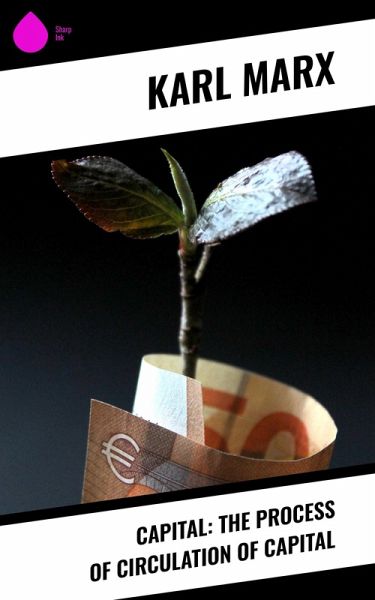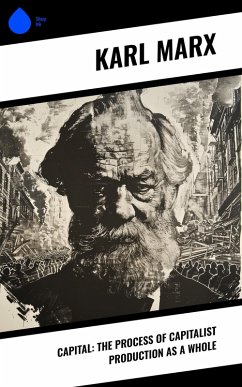
Capital: The Process of Circulation of Capital (eBook, ePUB)
Versandkostenfrei!
Sofort per Download lieferbar
2,99 €
inkl. MwSt.
Weitere Ausgaben:

PAYBACK Punkte
1 °P sammeln!
In "Capital: The Process of Circulation of Capital," Karl Marx delves into the intricate dynamics of capitalist economies, revealing the fundamental mechanisms behind the circulation of capital. Written in Marx's distinctive dialectical style, this seminal work combines rigorous economic analysis with philosophical critique, drawing on historical materialism. The text intricately explores concepts such as commodity fetishism, surplus value, and the transformation of money into capital, providing a rigorous examination of the capitalist mode of production and its implications for society and la...
In "Capital: The Process of Circulation of Capital," Karl Marx delves into the intricate dynamics of capitalist economies, revealing the fundamental mechanisms behind the circulation of capital. Written in Marx's distinctive dialectical style, this seminal work combines rigorous economic analysis with philosophical critique, drawing on historical materialism. The text intricately explores concepts such as commodity fetishism, surplus value, and the transformation of money into capital, providing a rigorous examination of the capitalist mode of production and its implications for society and labor relations. Karl Marx, a pivotal figure in political philosophy and economics, was shaped by the industrial transformations of 19th-century Europe. His experiences as an exile and journalist, coupled with his study of political economy, galvanized his critique of capitalism. Influenced by Hegelian dialectics and the works of classical political economists, Marx aimed to uncover the economic laws governing capitalist societies and their socio-political consequences, giving rise to his foundational theories. "Capital: The Process of Circulation of Capital" is highly recommended for those seeking a comprehensive understanding of Marx's critique of political economy. This book is essential for students and scholars alike, as it not only illuminates capitalist structures but also encourages critical reflection on contemporary economic issues. Engage with Marx's challenging yet rewarding insights to grasp the foundations of modern economic systems and their wider societal implications.
Dieser Download kann aus rechtlichen Gründen nur mit Rechnungsadresse in A, B, BG, CY, CZ, D, DK, EW, FIN, F, GR, HR, H, IRL, I, LT, L, LR, M, NL, PL, P, R, S, SLO, SK ausgeliefert werden.













